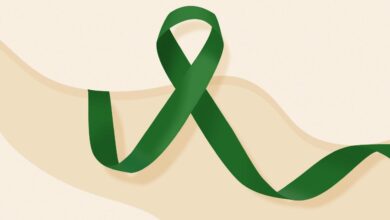NFL Football Players Open Up About Mental Health

Cincinnati Bengals tight end Hayden Hurst grew up loving sports, especially baseball and football. During high school, he felt most confident on the pitcher’s mound, even becoming a state champion with his high school team, according to an interview with the NFL Players Association (NFLPA).
After high school, Hurst decided to stick solely with baseball. But once he took his pitching prowess to the Pittsburgh Pirates farm system, Hurst developed anxiety and depression that had a debilitating effect on his performance on the baseball field.
“I developed depression where I would stay in my spring training dorm room in Florida and sit in the dark all day because I didn’t want to come around people,” Hurst said. “I couldn’t really explain what was happening to me.”
For the next three years, Hurst tried to fix his feelings with drugs and alcohol, he said. He also walked away from baseball and joined the University of South Carolina’s football team in the hope it would ease the pain of leaving baseball, he explained in a YouTube video posted in December 2020.
But his emotional pain didn’t go away and in January 2016, Hurst attempted suicide, he told the NFLPA.
After Hurst survived, with support from his family, he was able to give up drugs and alcohol and busy himself with a new goal — to reach the NFL, according to the Atlanta Falcons’ YouTube video.
In April 2018, that dream came true. Hurst was drafted by the Baltimore Ravens. Shortly afterward, he and his family started the Hayden Hurst Family Foundation, a nonprofit geared toward the health, wellness, and education of youth, military, and others in need.
Hurst hopes his story can help keep hope alive for those struggling with a mental health condition. “Keep going,” he advised in another YouTube video, posted by the NFL in September 2021. “Because as dark as it gets, I promise you there’s somebody out there in your life that loves you and that will support you and that’ll help you get out of that situation.”
The new 988 Suicide and Crisis Lifeline is available 24 hours a day, seven days a week, at the number 988. The previous Lifeline phone number (1-800-273-8255) remains available to people in emotional distress or suicidal crisis. Free crisis counseling is also accessible by texting HOME to 741-741.
Source link



